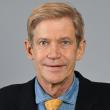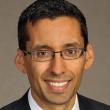
In-Depth Reports
Proliferation for Profit:
Since the 1955 Bandung conference of non-aligned countries, North Korea has based its foreign policy on the concept of chu'che (self-reliance) and has sought to establish an independent position in the developing world so as to acquire international legitimacy. Its motivations for involvement in the Middle East have gradually shifted
٠١/٠٧/١٩٩٤


